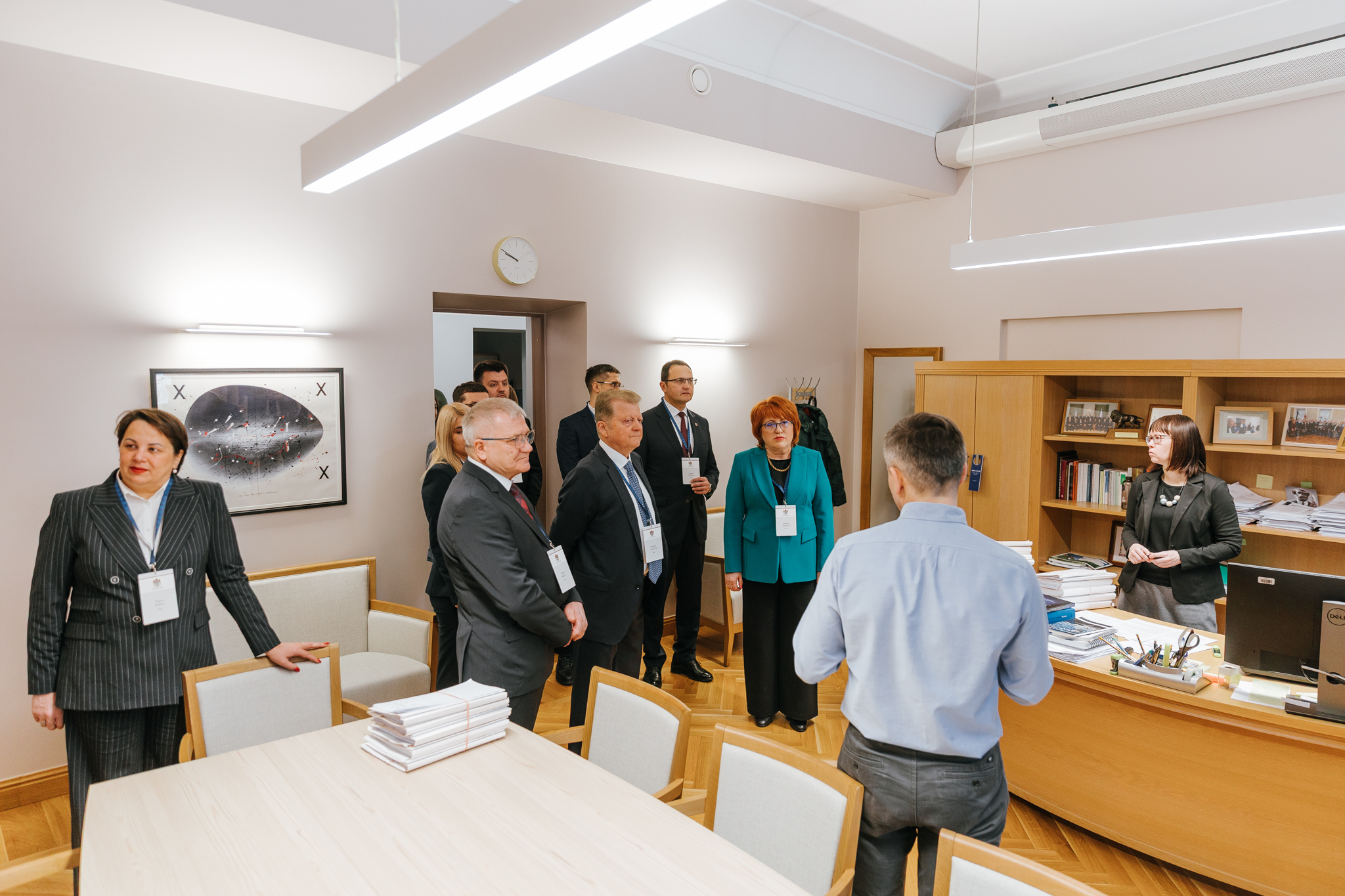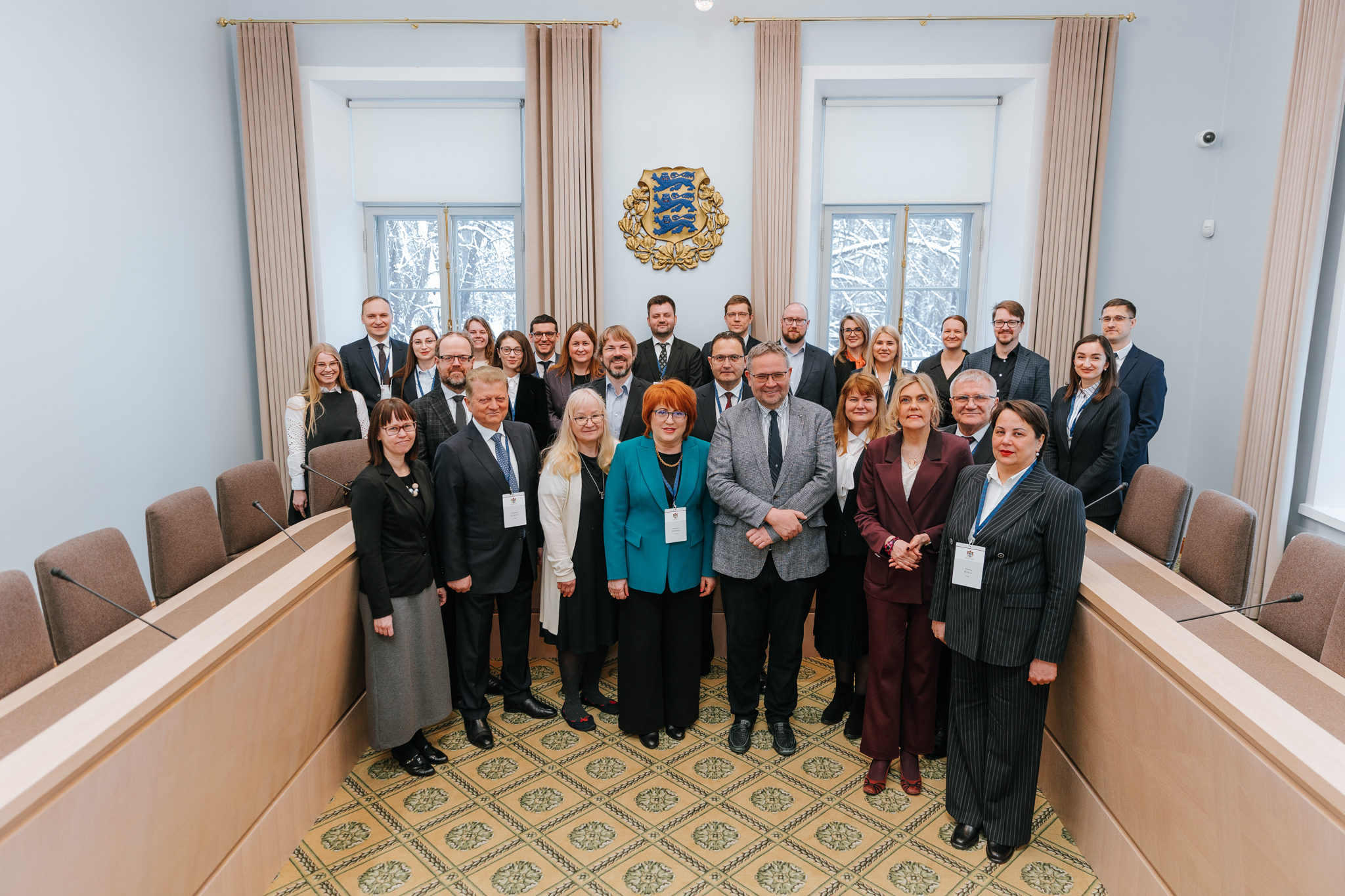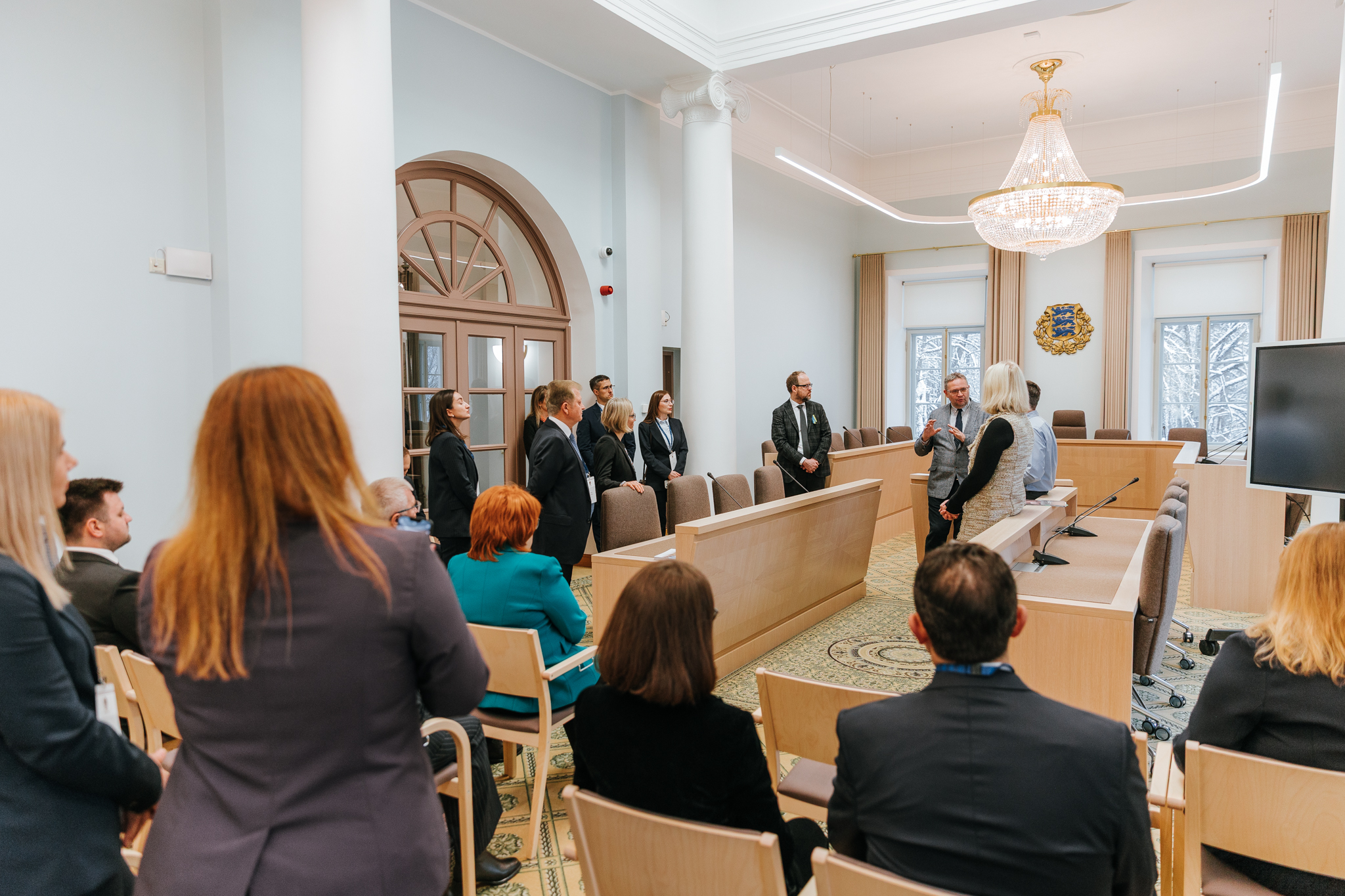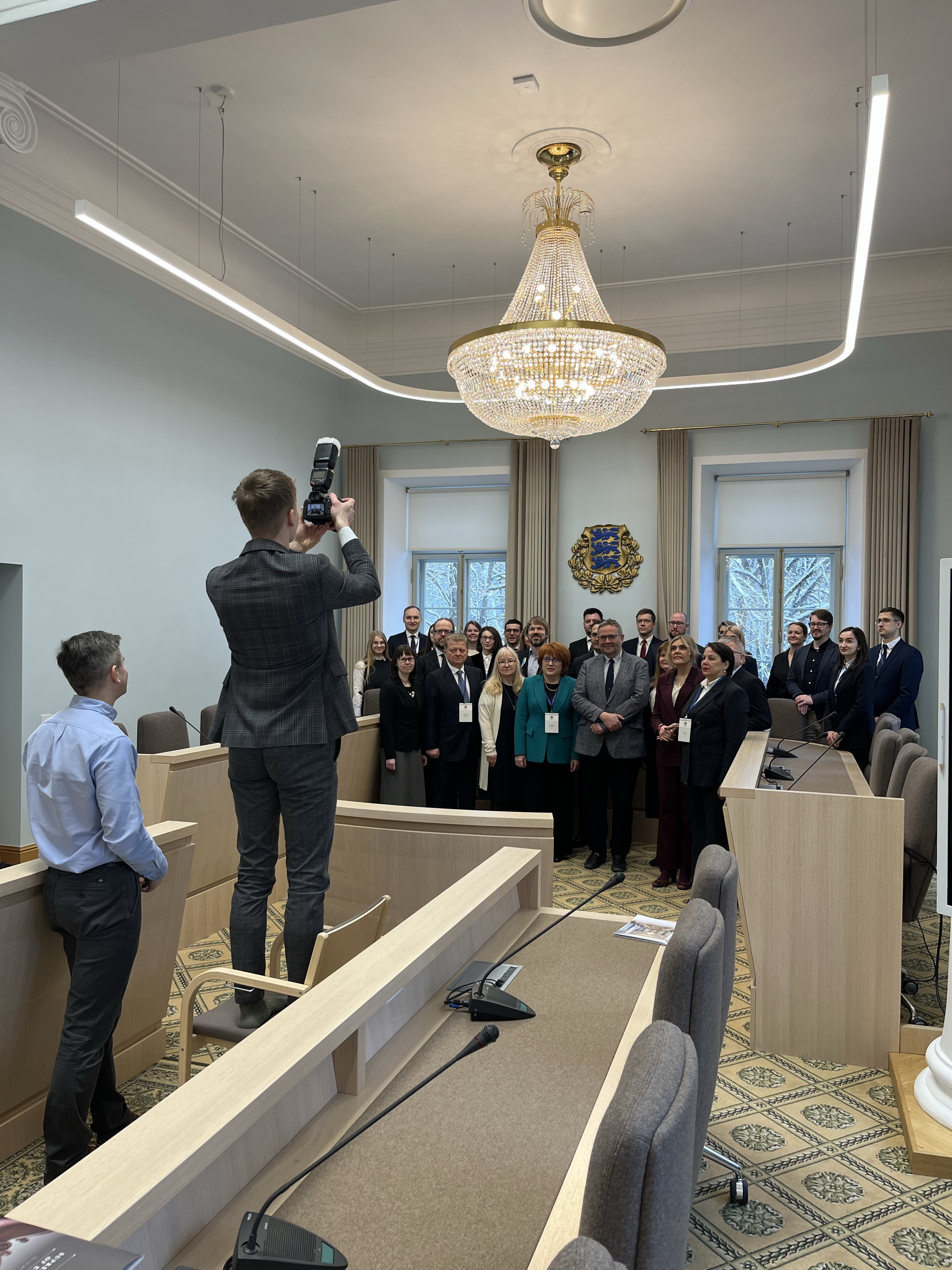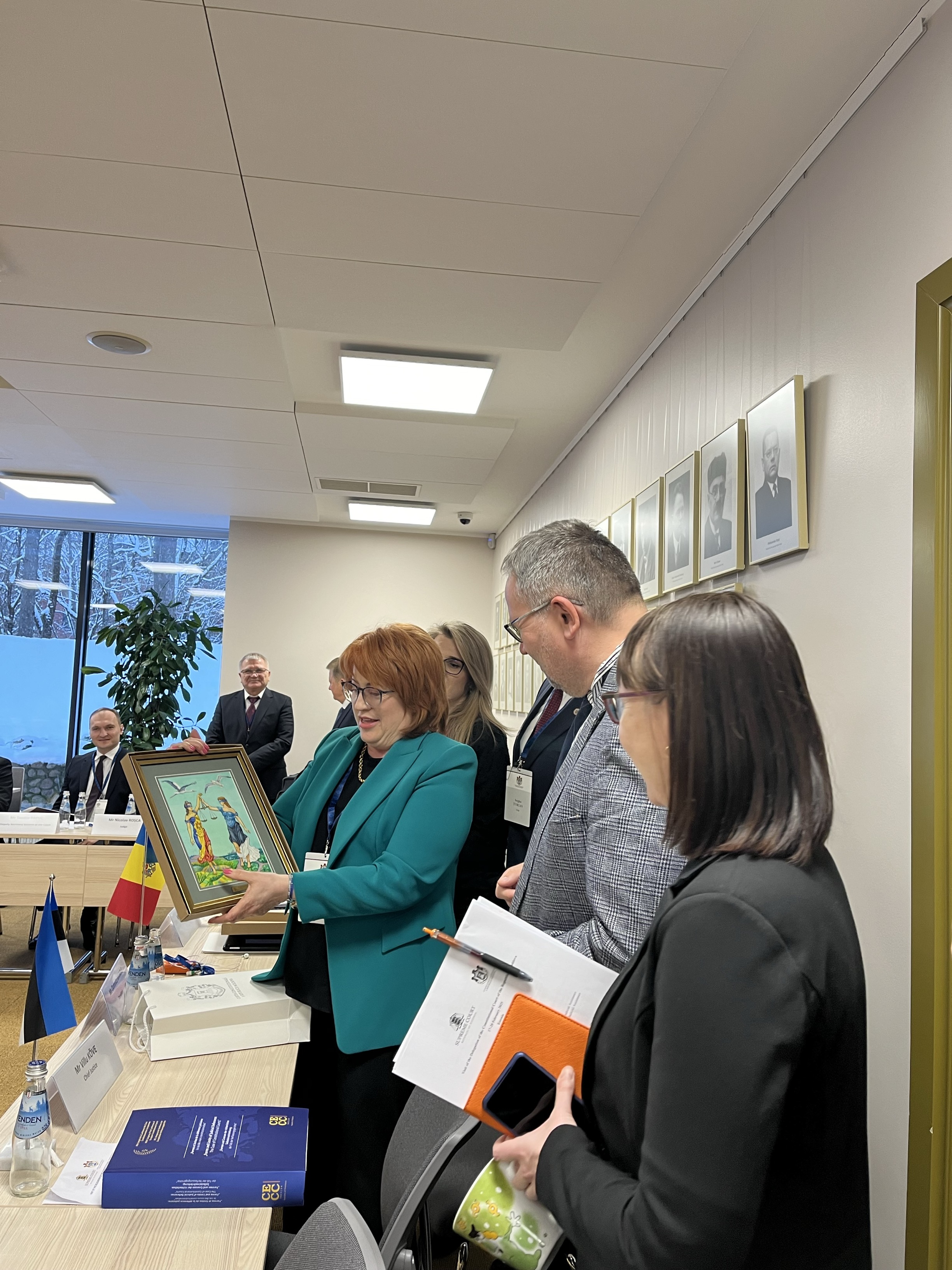 Riigikohus on Eesti Vabariigi kõrgeim kohus.
Riigikohus on Eesti Vabariigi kõrgeim kohus.
Põhiseaduse kohaselt on Riigikohus kassatsioonikohus ja
põhiseaduslikkuse järelevalve kohus. Riigikohtu pädevus
on sätestatud kohtute seaduses. 
Primary tabs
The Supreme Court of Estonia hosts the Constitutional Court of Moldova
A delegation from the Constitutional Court of Moldova is on a study visit to Estonia from 17 to 20 February to familiarise themselves with the Estonian judicial system and the work of the Supreme Court.
In his welcoming speech, the Chief Justice of the Supreme Court of Estonia, Mr Villu Kõve, emphasised that Estonia and Moldova share historical experience and that Moldova's progress is followed with great interest in Estonia. "After the collapse of the Soviet Union, our starting positions were similar, but today Estonia has joined the European Union and we hope that Moldova will follow this path," said Kõve. "We are happy to see Moldova in the family of European democracies based on the rule of law," added the Chief Justice of the Supreme Court.
Ms Domnica Manole, President of the Constitutional Court of Moldova, acknowledged the development of the Estonian legal system and stressed the importance of cooperation. "It is a great pleasure to see how Estonia's legal system has developed rapidly since the collapse of the Soviet Union. The aim of our visit is to understand how things work in Estonia and at the same time to share Moldova's experience and practice," said Manole. "I hope that this meeting will create a basis for good cooperation in the future, so that we can continue to share good practices and experiences," added the President of the Constitutional Court of Moldova.
At a seminar held at the Supreme Court, discussions were led by justice of the Supreme Court, Ms Julia Laffranque and judges of the Constitutional Court, Mr Serghei Țurcan and Ms Viorica Puica on the topic of the composition and jurisdiction of the two courts. Unlike the Supreme Court of Estonia, the Constitutional Court of Moldova can be approached with constitutional review issues by, for example, the government, the supreme judicial council, the prosecutor general, as well as parliamentary factions. While the Constitutional Court of Moldova receives over 300 submissions per year, the Constitutional Review Chamber of the Supreme Court received 34 submissions last year. However, the Constitutional Court of Moldova is not obliged to accept all cases for review.
Monday's discussion focused on the interpretation and application of European Union law in constitutional review and administrative law. Presentations were given by Supreme Court justice Nele Siitam and adviser Mats Volberg, who discussed the interaction between European Union law and Estonian legislation and explained the practice of requesting preliminary rulings from the European Court of Justice. During the concluding remarks, guests explored in more detail the process of requesting a preliminary ruling in constitutional review cases.
In the coming days, meetings will also take place with representatives of the Office of the President of the Republic, the Office of the Chancellor of Justice, Harju District Court, the Ministry of Justice and Digital Affairs. Additionally, there will be meetings with members of the European Union Affairs Committee and the Constitutional Committee of the Parliament of Estonia (Riigikogu). The visit of the Constitutional Court
Photos: Supreme Court of Estonia.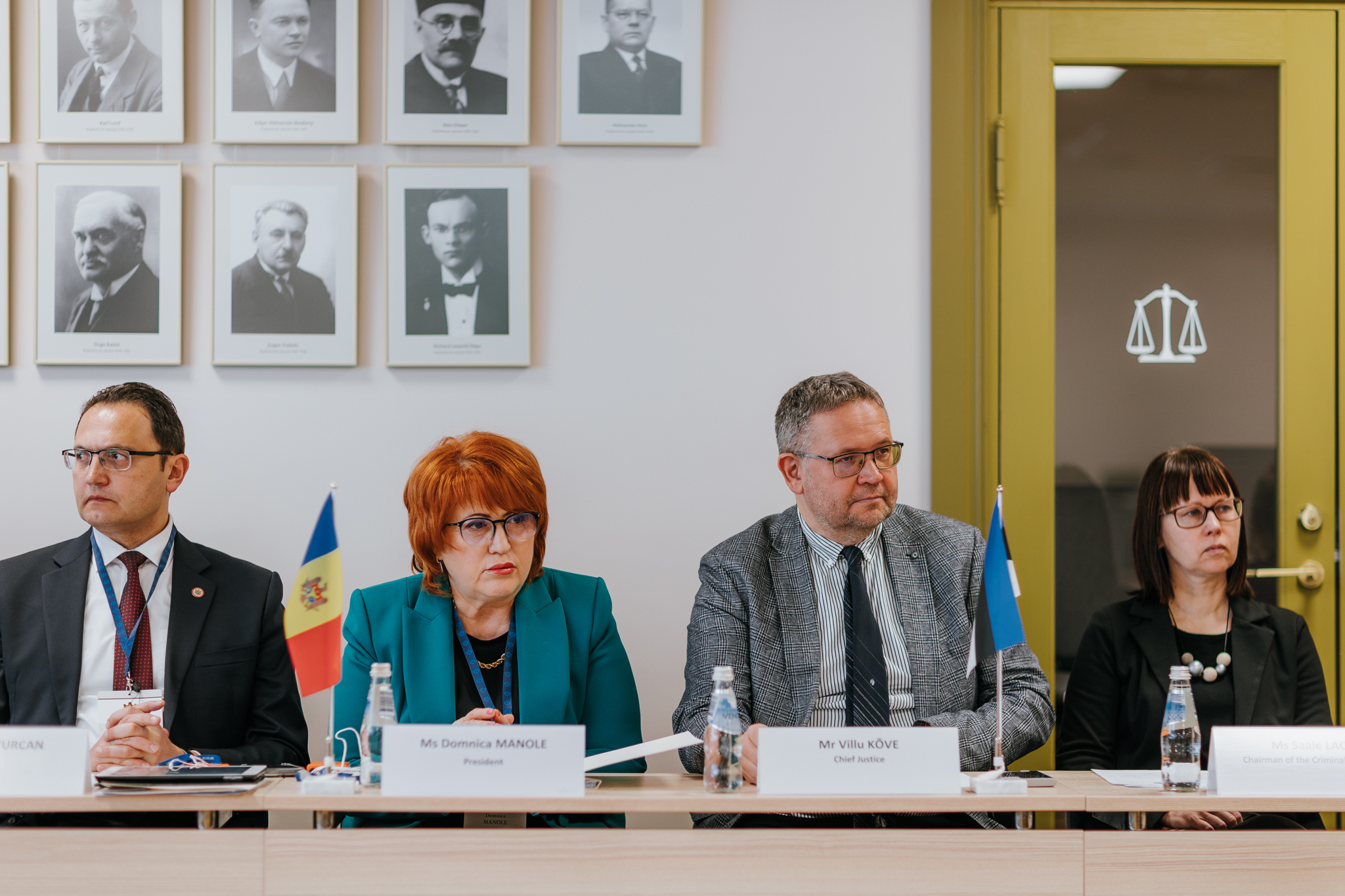
Further information: Karin Leichter-Tammisto, Legal Adviser to the Chief Justice of the Supreme Court, +372 730 9022, karin [dot] leichter-tammisto![]() riigikohus [dot] ee
riigikohus [dot] ee
Article prepared by:
Sandra Sommer
Press Officer
+372 5333 9846, +372 730 9042
sandra [dot] sommer![]() riigikohus [dot] ee
riigikohus [dot] ee


